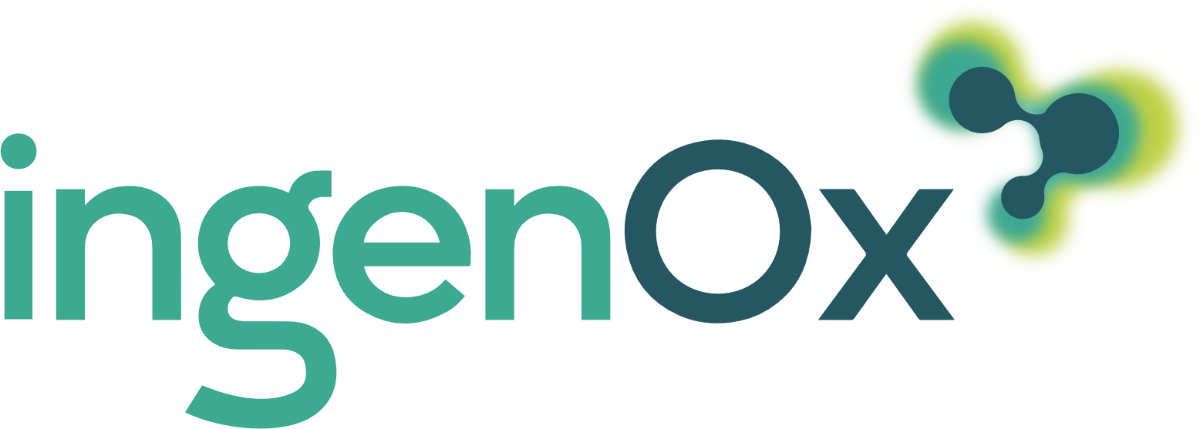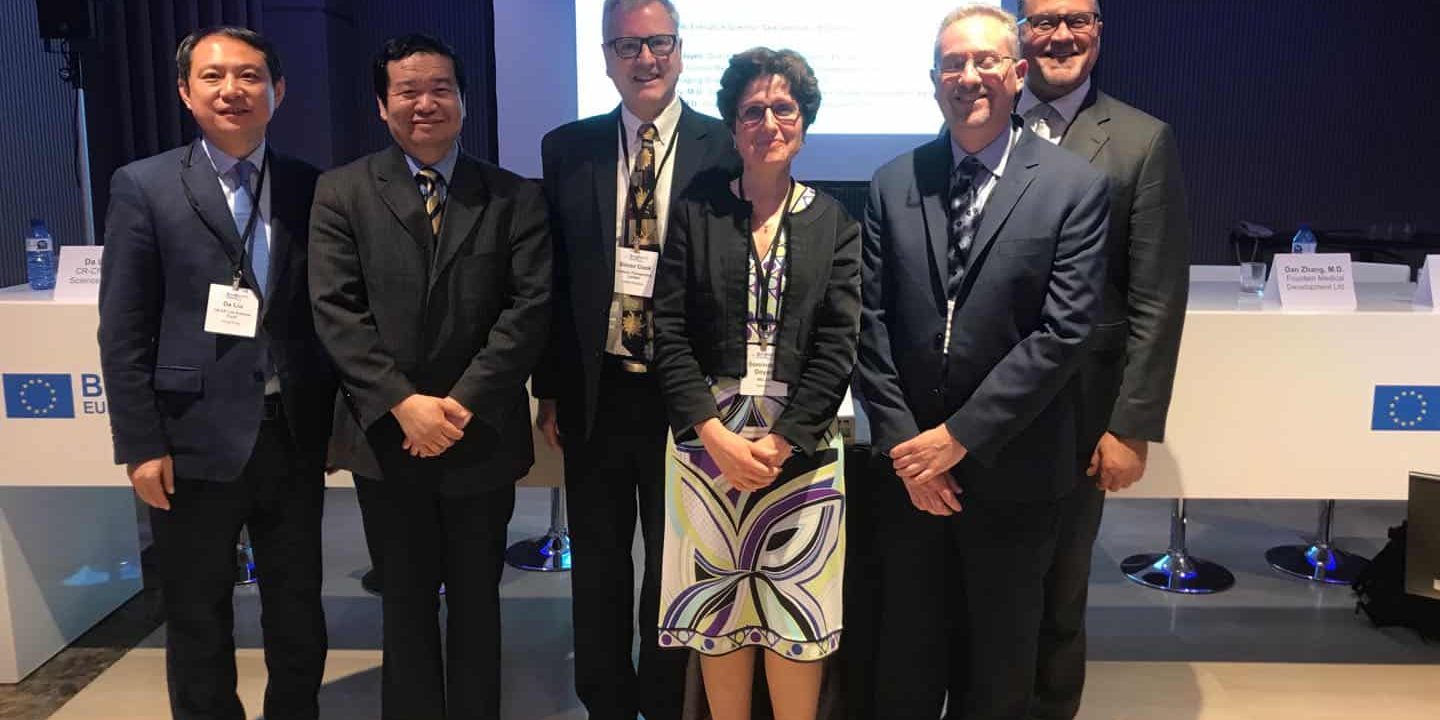Oxford, UK, 22 May 2019 – Celleron Therapeutics, the UK-based company developing personalised medicines for cancer patients, participated in the China session of the 20th BioEquity Europe Conference, held in Barcelona, Spain on 20-21 May 2019.

China: An R&D Hot Spot For European Biotechs
This workshop, organized by BioCentury and BayHelix, examined how recent changes in the rapidly evolving China healthcare scene offer both drug development and commercial opportunities for European biotechs.
Panellists Included:
- Dominique Doyen, Director, Business Development, 4SC AG
- Simon Cook, Clinical Research Director, Celleron Therapeutics Ltd
- Da Liu, Managing Director, CR‐CP Life Science Fund
- Todd Yancey, M.D., SVP, Global Medical Affairs & New Market Development, BeiGene Ltd
- Dan Zhang, MD, Chairman, Fountain Medical Development Ltd
- Moderator: Joshua Berlin, Executive Director, New Ventures, BioCentury
The China healthcare market, currently worth over 1,713 billion yuan (£196 billion), is expected to quadruple in the next 50 years. Factors leading to the rapid expansion include demographic changes, such as the doubling of the over-60s population to 500 million, and progressive increases to the National Healthcare Security Administration (NHSA) state medical bill reimbursement, together with growing private healthcare insurance coverage, focusing especially on delivering anti-cancer treatments. Since China joined the International Council on Harmonisation (ICH) in 2017, the country has adopted Good Clinical Practices (GCP) and taken huge strides to improve its clinical development capabilities.
The first speaker, Dan Zhang, MD, presented an overview of how new regulatory reforms by the National Medical Products Administration (NMPA) now allows for the acceptance of overseas data, presented in Common Technical Document format, and a reduction in the Investigational New Drug (IND) approval period to 60 days. He also shared his views on how the implementation of drug development in China compared to other ICH territories such as USA, EU, and Japan.
The forum moderator, Joshua Berlin, then opened the discussion to other panel members, comprising representatives from biotech and investment companies from Europe and China, who offered their perspectives on the topic at hand.
A recurring observation for European biotech companies was that having a local partner was essential in running a successful China R&D programme, which could be achieved through a partnership with a Chinese pharma company, or a contract research organisation (CRO) service provider. Simon Cook, Clinical Research Director at Celleron Therapeutics, offered a synopsis on the company’s cancer drug development programme in China. In addition to establishing deep clinical partnerships with China’s leading cancer hospitals, Celleron had secured a territorial licensing partner with responsibility for progressing Celleron’s products into clinical trials.
European companies with innovative or breakthrough products could expect to gain favour with both Chinese regulatory authorities and investors alike.
Cook commented “China now seems to offer the best of both worlds as a place to do clinical research in terms of rapid access to large patient populations, both for the conduct of ICH standard trials and as an eventual market. Certain types of tumour, such as liver, throat, and stomach cancer have a much higher prevalence that in Europe, and this represents a market opportunity for biotechs targeting these indications.”
It was noted that face-to-face meetings, typically involving lead investigators, was given far more emphasis by Chinese regulators than those in the West. Cook outlined the advantages and challenges of executing a clinical and commercial strategy in China, but he noted that the recent regulatory reforms were extremely beneficial to companies like Celleron.
In 2018 the Hong Kong Exchange opened a new biotech chapter, which has quickly become a hub for cross-border IPOs. This provides an attractive opportunity for pre-revenue biotech companies with innovative products in advanced clinical trials, 2 years of continuous operations, a strong management team, and good corporate governance. It was also acknowledged that due to the shifting international relations climate, Hong Kong and other Asian investors may pivot their attention to European biotech stocks, which could offer a safe haven for growth.
Professor Nick La Thangue, CEO and Founder, noted that “Celleron’s ambitious plans to pursue clinical trials and market access in China require considerable expertise and a detailed understanding of the Chinese regulatory process. It’s a great endorsement of our company to have key members of our team leading the panel discussion at international events like BioEquity”.
NOTES:
About Celleron Therapeutics
Celleron Therapeutics is a biopharma advancing a clinical and pre-clinical pipeline of precision therapies for different cancer indications. The company is a spin-out from Oxford University and located on the Oxford Science Park, UK. Celleron Therapeutics has built a proprietary platform around epigenetic control and immune modulation, providing its drugs with a two-pronged attack on cancer. Celleron’s approach seeks to align the right drug with the right patient enabling a personalised approach to cancer therapy.
Celleron Therapeutics’ focus is on those cancers where there is still an unmet need for long-term disease control. It is hoped that not only will patients volunteering for our clinical trials benefit directly, but the results from these studies will ultimately allow the general use of more effective, safer medicines. Our goal is not only to treat cancer, but improve quality of life during therapy by reduction of side effects.
Celleron has a global license partnership with Astra Zeneca and is also initiating new trials in China. The company secured investment in 2016 from a consortium of South Korean investors. For more information see www.cellerontherapeutics.com
About CXD101
CXD101 is Celleron Therapeutics’ next generation epigenetic immune-regulator representing a class of drug that kills cancer cells by blocking certain vital functions involved in gene expression (histone–deacetylase [HDAC] inhibitor) and reactivates the patient’s immune system so that cancer cells can no longer evade immune recognition.
The European Medicines Agency (EMA) has previously granted CXD101 Orphan Drug Designation as single agent therapy, based upon early-phase trial efficacy seen in relapsed or refractory Peripheral T-Cell Lymphoma (PTCL) patients. A PTCL Phase II trial is scheduled to start late 2019 in China.
Celleron Therapeutics have an ongoing Phase II clinical trial investigating the effectiveness of CXD101 in combination with an immune oncology agent, against a type of colorectal cancer (microsatellite stable) which typically does not respond to IO agents alone (CAROSELL Study). The clinical trial strategy rests on compelling pre-clinical results which provide novel insights into how CXD101 and IO drugs work together to re-engage recognition of tumours by the immune system. The trial will also allow exploration of a range of new biomarkers to help select those patients likely to benefit most from combination therapy.
Download the Press Release here:

